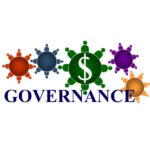


Frequently Asked Questions
What is ESG?
Environmental, Social and Governance criteria are a set of standards for a company’s operations that socially conscious investors use to screen potential investments.
Why ESG reporting matters to your company.
Today financial results are not the only measure by which firms are valued on the market. Social and environmental outcomes of a company are critical to the sustainability of company growth.
Is an Environmental, Social, and Governance document a new operational requirement?
No. ESG reporting is voluntary. However, the oil and gas industry is changing and a clear indication is the performance of oil and gas companies on the S&P 500. Most brokerage firms and mutual funds invest in companies that follow ESG criteria.
What is typically included in an ESG report?
To be effective an ESG report should generally include a company’s impact on climate change and carbon emissions, water use, conservation efforts, anti-corruption policies, board compilation including how directors are elected, the audit committee structure and diversity in gender. However, it is important to also highlight diversity in industry backgrounds inside the board of directors. Of course, safety measures, data protection, employee engagement including efforts for positive team dynamics and transparency from management to teams are all important metrics. Don’t forget to give information about community development, local corporate engagement and giving. These are just a few of the topics to consider, NOT an exhaustive list.
Who is an ESG document written for?
Companies should communicate their ESG analysis and plans to shareholders and the community at large. It should be posted on their website and easily available to the public.
What are the basics of creating an effective ESG report?
1. Develop your Company’s ESG philosophy and priorities.
2. Determine which ESG issues and data are material to your company and to key stakeholders.
3. Set a goal to publish an ESG or Sustainability Report or ESG Website once you have sufficient ESG information to report.
4. Confirm your proxy, investor decks, shareholder engagement decks and website are consistent regarding ESG disclosures
5. Incorporate ESG practices into your operations, where appropriate, as well as management and board oversight.
6. Review and update the ESG portion of your website and your ESG/Sustainability report at least annually.











